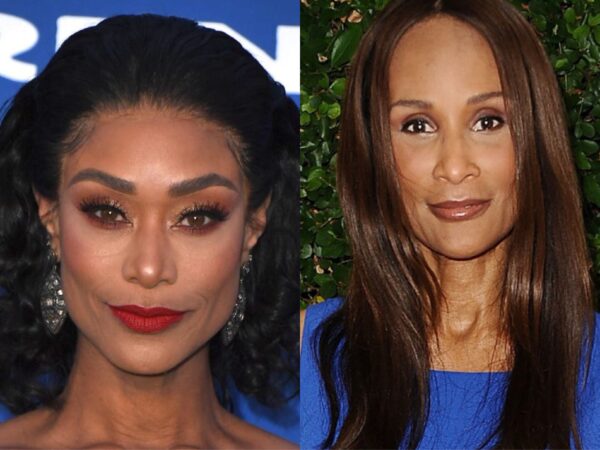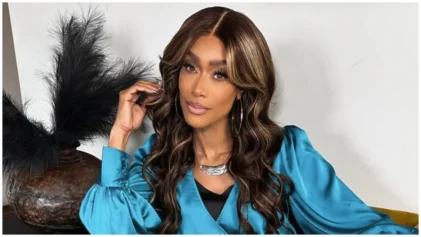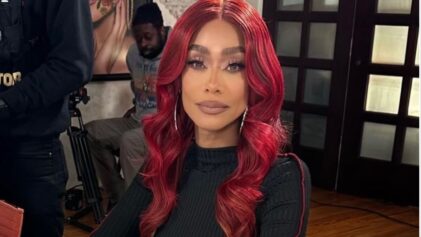Several white celebrities and influencers enlist the services of local plastic surgeons to undergo various surgeries, aiming to attain features or body characteristics resembling those of Black women. These individuals go beyond just darkening their skin and enhancing their lips; some even opt for BBL surgeries to achieve more curvaceous bodies reminiscent of women of African descent.
Despite arguments suggesting a shift in the perception of beauty due to this trend, it’s important to acknowledge that Black women may be experiencing body dysmorphia disorder (BDD).
Body Dysmorphic Disorder (BDD) is a mental health condition characterized by persistent self-criticism concerning one or more perceived defects or flaws in one’s appearance. Many times, this condition arises for Black women when they perceive the imperfections of their natural bodies through the lens of Eurocentric ideals of beauty.

Overwhelming studies about mental health and body imaging are centered around white women.
“The small body of quantitative research that examines Black women’s unique experiences of sexual objectification (e.g., receiving negative comments and discrimination due to the size and appearance of their physical features) and body image pressures have not explored their individual or collective impacts on Black women’s mental health, such as depressive symptoms,” according to research published by Science Direct.
In America, one out of every 50 persons (male or female, regardless of race) grapples with the distortions associated with BDD, according to Refinery 29.
This figure is on a swift incline as an increasing number of individuals experience chronic dissatisfaction with their appearance based on what they see on social media and in Hollywood. However, the mental illness also impacts celebrities, including Black A-listers, who struggle with seeing their bodies as beautiful despite their legions of fans.
Actress Kerry Washington wrote in her new book “Thicker than Water,” that she thought about killing herself because of her inability to look a certain way.
“The body dysmorphia, the body hatred, it was beyond my control and really led me to feeling like I need help from somebody and something bigger than me or I am in trouble ’cause I don’t know how to live with this,” Washington said in her interview with “Good Morning America” host Robin Roberts while promoting the memoir.
She called this period of her life a “toxic cycle of self-abuse” that she engaged in just to look a certain way.
Actress and former “Basketball Wives” cast member Tami Roman says she, too, struggled with BDD and that teasing from people on social media added to her plight.
“I’ve had it since I was 13 years old. It is a mental disorder based on either trauma or genetics, and mine is trauma-based,” she said.
Adding, “No matter how I look to people, when I look at myself if I can always pick something apart. I always feel like I’m overweight,” and noting that she also hears people calling her “bobblehead” or “too skinny” and that translates as a compliment to her.
For some Black women, the struggle with body image and the unhealthy need to maintain a certain silhouette came from outside influences. Supermodel Beverly Johnson, the first black model to appear on the cover of American Vogue in 1974, recently revealed that to maintain a stick-thin frame and prosper in the highly competitive modeling world, she lived off a diet of cocaine, two eggs, and a bowl of brown rice a week.
Johnson tells Page Six that it got so bad that she would shake uncontrollably. “I would just stop and get the shakes,” she said. “We did not eat, and every time you came to work they would say, ‘Yes! Chisel to the bone girl. Yes,’ like congratulating you. Nobody really told you the truth.”
Johnson went on to say that her mother was her saving grace. It was not until her mother made her get out of the bathtub and look into the mirror that she saw the truth. “It was the first time I saw my bones looking back at me,” said Johnson. “It was a major wake-up call for me.”
Acknowledging the challenges Black women face with their body images is uncommon. The notion that Black women are inherently more body-positive than other women is laden with stereotypes linked to race and sexual objectification.
Rachel Boutte, Ph.D., wants to dispel this thinking but also notes it is hard for even Black women to come to terms with what this means for them.
“We don’t really understand body image very well in Black women. Unfortunately, they have been just left out of the conversation for a long time,” she says, according to an interview with FOX 5 Atlanta.
Boutte’s focus is mostly on body dissatisfaction, being careful not to isolate body image to one conversation because of its complexity.
“Black women do experience body dissatisfaction, and it can be directly linked to their weight,” the researcher continued, also adding that Black women with higher BMIs are more likely to start disordered eating, which could lead to developing some kind of eating disorders.
She worries, “If Black women aren’t even being considered that they might have eating disordered behaviors, then the right intervention is going to be totally missed, and even worse, there could be a sense of steering them in the wrong direction.”
More research and more Black celebrities speaking out is important now more than ever.


